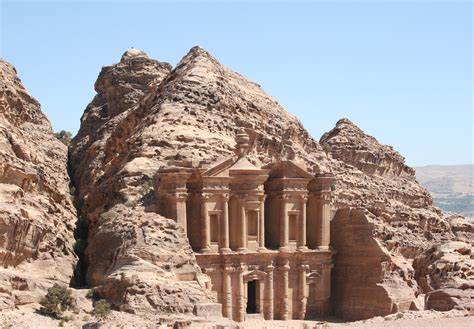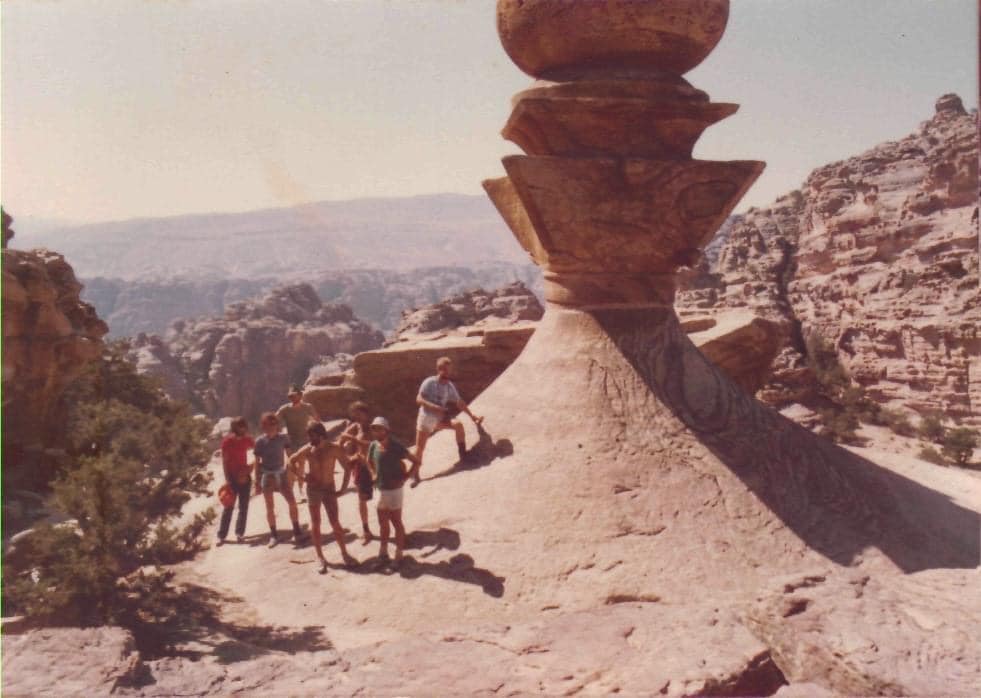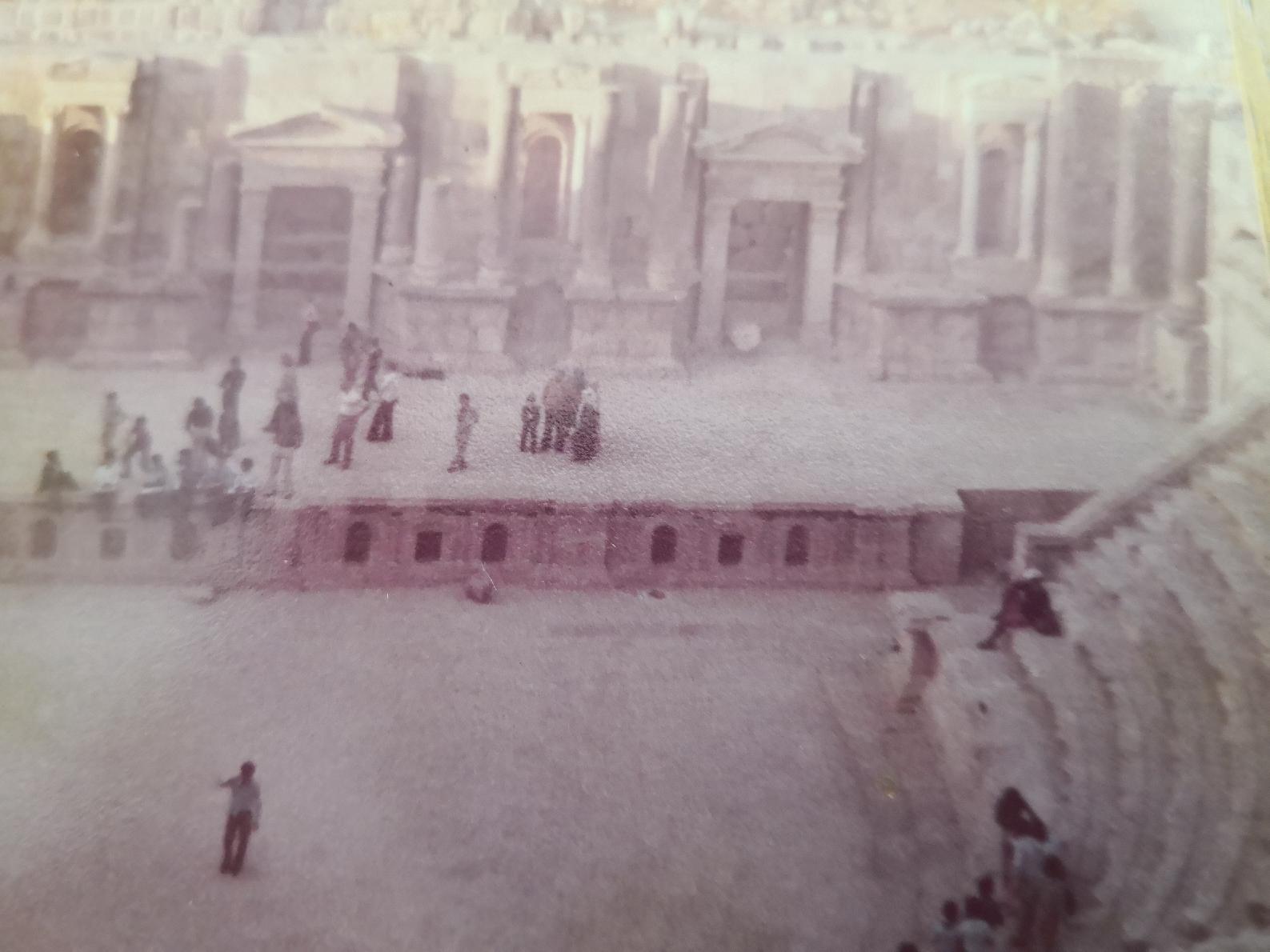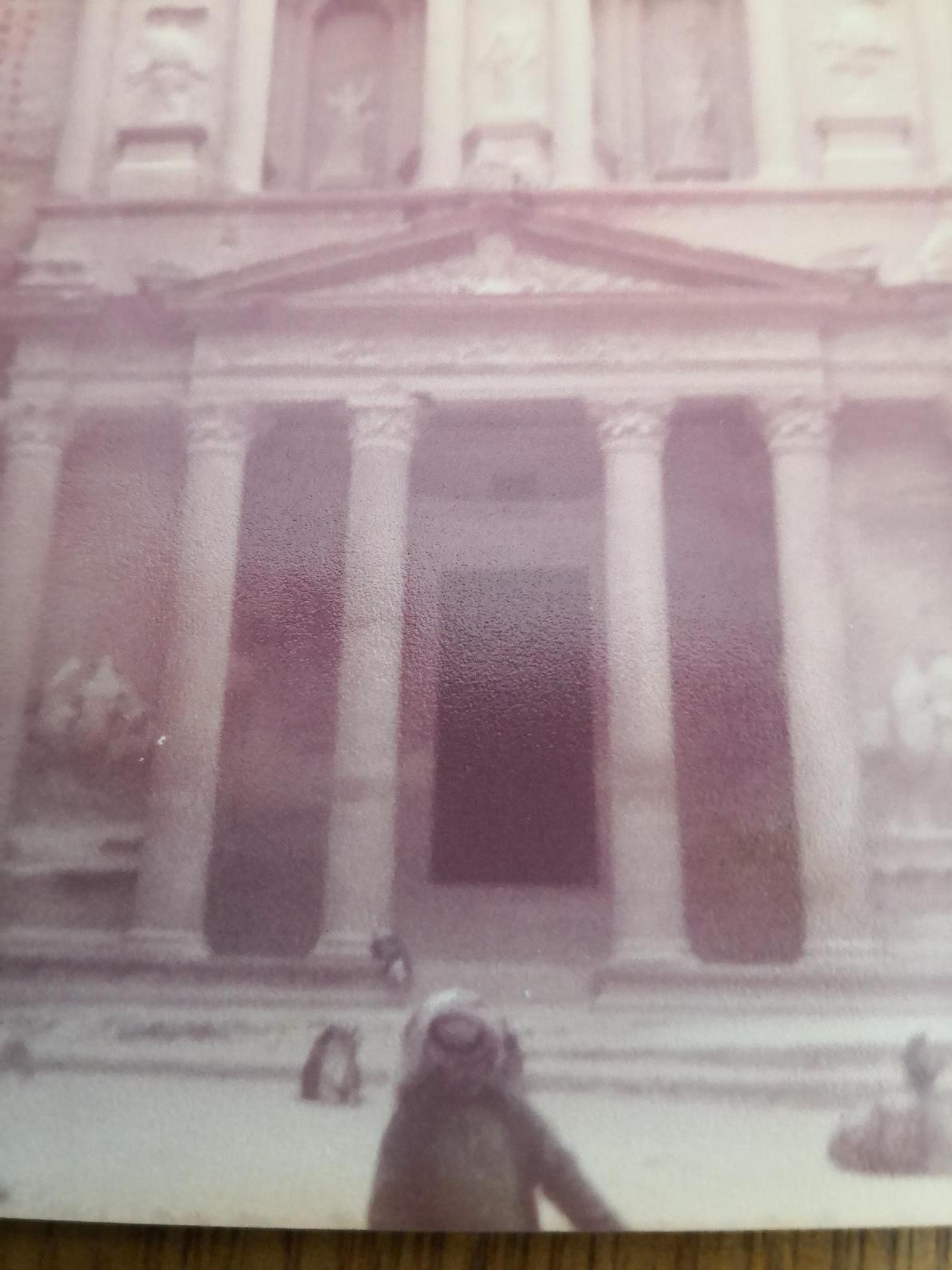
AsianOverland.net
Tour Guide - Itinerary
Asian Overland Kathmandu to London 1980
Started 18/09/1980 Finished 03/12/198077 Days ITINERARY
Day 43 date 30/10/1980WADI RUM to PETRA, JORDAN
ASIANOVERLAND.NET SYDNEY TO LONDON DAY 131/292/43: WADI RUM TO PETRA, JORDAN
Petra is a historic city in Jordan surrounded by mountains forming the eastern side of the Arabah valley running from the Dead Sea to the Gulf of Aqaba. Access to Petra is through a 1.2-kilometre-long gorge called the Siq,
The area around Petra has been inhabited since 7000 BC, and the Nabataeans settled in what became the capital city of their kingdom in the 4th century BC. The Nabataeans were Arabs who exploited Petra's position on the frankincense, myrrh and incense trade routes by establishing Petra as a major regional trading hub.
The trading business gained the Nabataeans considerable revenue and Petra became the focus of their wealth. Unlike their enemies, the Nabataeans were accustomed to living in the barren deserts and were able to repel attacks by taking advantage of the area's mountainous terrain. They were particularly skilful in harvesting rainwater, agriculture and stone carving.
The Nabataeans survived in a waterless desert and defeated their enemies by hiding in the desert until their enemy surrendered for lack of water. The Nabataeans dug cisterns that were covered and marked by signs known only to themselves. Diodorus wrote about how they were "exceptionally fond of freedom" and includes an account about unsuccessful raids that were initiated by Macedonian Greek general Antigonus I in 312 BC:
"neither the Assyrians of old, nor the kings of the Medes and Persians, nor yet those of the Macedonians have been able to enslave them, and... they never brought their attempts to a successful conclusion."
After Alexander the Great's death in 323 BC, his empire split among his generals, and Antigonus I took Anatolia and conquered the Levant. According to Diodorus Siculus, Antigonus tried to add "the land of the Arabs who are called Nabataeans" to his existing territories of Syria and Phoenicia.
Antigonus ordered one of his officers, Athenaeus, to raid the Nabataeans with 4000 infantry and 600 cavalry, and loot the Nabatean herds and possessions. Athenaeus learned that, every year, the Nabataeans gathered for a festival, during which women, children, and elders were left at "a certain rock" (the future city of "Petra", "rock" in Greek.)
The Macedonians attacked "the rock" in 312 BC while the Nabataeans were away trading. The inhabitants were taken by surprise and tonnes of spices and silver were looted. The Macedonians departed before nightfall and made camp where they thought they would be safe from Nabataean counter-attack. The camp was attacked by 8000 pursuing Nabataean soldiers -
"all the 4000 foot-soldiers were slain, but of the 600 horsemen about fifty escaped, and of these the larger part were wounded".
Athenaeus himself was killed. The Macedonians had deployed no scouts, due to a failure to anticipate the speed of the Arab Nabataean response. Thousands of years later, some are still struggling to learn the history of the "exceptionally fond of freedom" Arabs in the Middle East.
Petra flourished in the 1st century AD, when its Al-Khazneh (treasury of the pharaoh), the mausoleum of Nabataean king Aretas IV, was constructed, and Petra's population peaked at 20,000 inhabitants.
Although the Nabataean kingdom became a client state of the Roman Empire in the first century BC, it was only in 106 AD that it lost its independence and renamed Arabia Petraea.
Petra's importance declined as sea trade routes emerged, and after an earthquake in 363 destroyed many structures.
Our 1980 Kathamndu to London overland Trip Book records:
“30 October, 1980
We surfaced for the sunrise at Wadi Rum, and decided we could have slept through it! The mountains/rocks are worth a look at any time of the day!
Pursued by Vaseline-carrying Arabs shouting
‘Laurence I love you, come back!’
Mountain goat awards go to those 9 people who climbed to the Monastry, and a gold bar as well for the four who climbed the Monastry itself! Jim, Wendy, Sue, Graham.
Camel ride by Corrie & Sarah, an extremely uncomfortable seat with fleas. But nevertheless worthwhile.
Angel whirl for dinner – great stuff.”
© This work is copyright. Apart from any use permitted under the Copyright Act 1968, no part may be reproduced by any process, nor may any other exclusive right be exercised, without the permission of Peter Searle, peter@portseavillageresort.com; 1980-2024.
Website built by Justin O’Dea www.webdeveloperdocklands.com.au





